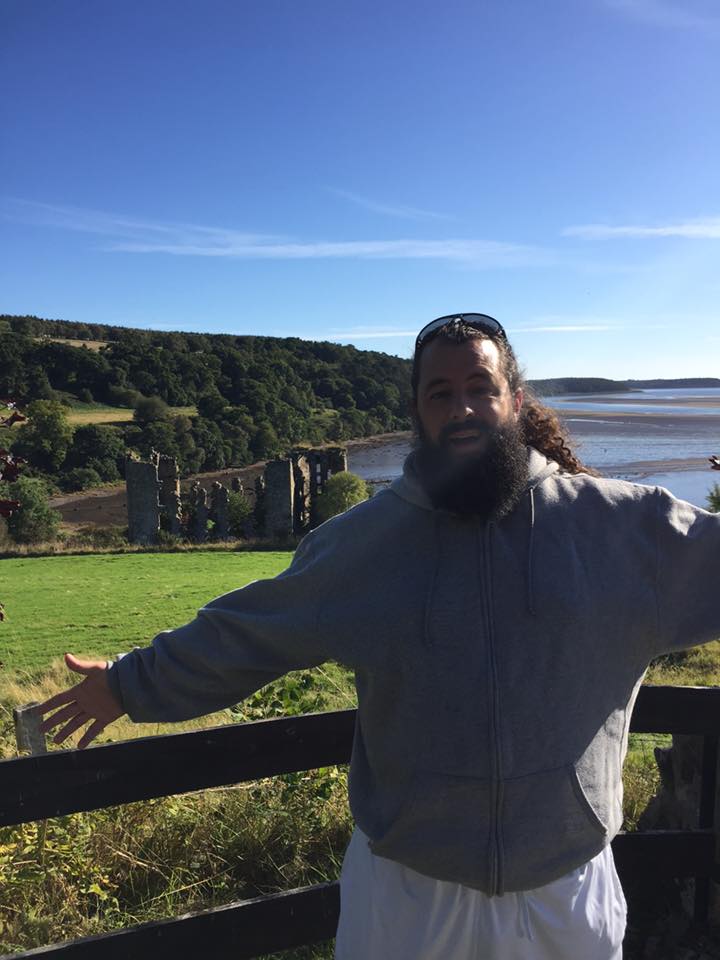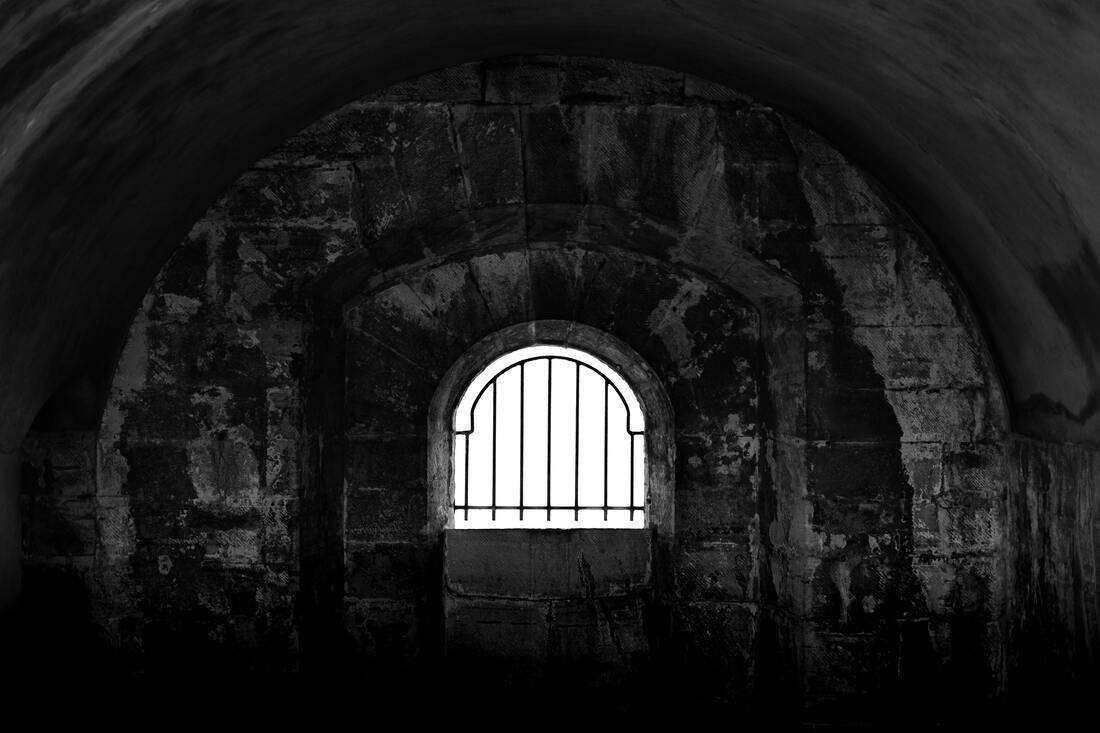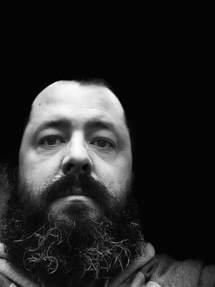|
I’ve only just nearly finished An Experiment in Criticism, by C.S. Lewis, which I purchased over two decades ago. It sometimes pays to invest that far into the future. Delightful in many ways, not the least with the wit and charm of his writing, Lewis has challenged me to become a better, more literary reader. One of the key concepts he describes is what he calls egoistic castle-building. In this sense, a particular reader takes in certain texts or art, not for the pure experience of art, but to use the piece for their own fantasies. I do not do this with books anymore, but I think we all struggle with the desire to live with certain illusions of our own exceptionalism. Lewis describes a division between ‘users’ of art, and ‘receivers.’ I hope I will always remain in the latter group. In one of Lewis’s last chapters of the book, there are a few fine quotes that I will place here for consideration, as I think they are just wonderfully perceptive and hopeful. “…I can never see anything exactly from the point of view even of those of whom I know and love best.” Isn’t this true, and yet we continue, on a regular basis, to lump and define so many we hardly know. These categorizations often lead to disregarding or villainizing the classified “others.” This is damaging to us, and to society. The next sentence Lewis offers is more hopeful. “But I can make at least some progress toward it (understanding their point of view).” Parenthetical comment is mine This statement has in it a bit of hope, and humility. If we are committed, we can draw nearer to understanding and building connections with our neighbors, our friends, our families. Even then, we must recognize that we may only make “some progress.” This requires, even after all our effort, that we withhold judgment. We must always be merciful. Later in the same chapter, Lewis uses a metaphor to address whether or not one should make this effort at empathy and compassion, given its attainment can only ever be partial. “If I can’t get out of the dungeon, I shall at least look out through the bars. It is better than sinking back on the straw in the darkest corner.” I am an introvert. Many of us (introverts) are constantly wrestling with self-doubt and depression, longing to attain greater self-awareness and also intimacy with others. Yet, we have learned that our eccentric personalities sometimes make us difficult to befriend. So, we face the real temptation to sink back into “the darkest corner” and engage in “egoistic castle-building.” This is a lie that harms us by robbing us of others, and therefore, love. It also robs those we did not battle hard enough to love. I like to play video games, and indeed, this is where some of those silly castle-building exercises occur. However, some gaming writers are thinkers and artists, and occasionally their work can ring the alarm. One quest from a game called “Dragon Age” has the hero entering a castle that is undefended against certain villainous and overwhelming magical attacks. The powerful ruler of the castle is nowhere to be found. Eventually, your hero finds a magical portal, into which this ruler has gone and never returned. They have been lulled by a demon who has created an illusion of beauty and perfect peace. If this person is unable to break the spell, and exit the portal, come back and fight for the castle, it will fall, and they will be enslaved forever. Even if they do return, they will find the battle is already lopsided, and will have to struggle against the results of their own drawn-out period of illusion. Your hero's task is to convince them to fight. One of the most significant spiritual illnesses mentioned by the desert fathers and the monks of Athos is called “forgetfulness.” This is a state where we’ve allowed ourselves to forget the magnificence of God, and His great love for us, and so we sink into delusion, depravity, and ultimately despair. Forgetfulness is subtle, and yet it is a gateway to all kinds of destruction. I believe that part of our desire for castle-building (which can take all sorts of forms, including some which might be regarded as right and good) is about forgetfulness. When we've lost faith, we start to play god. Because we are vulnerable to forgetfulness, we must cultivate a remembrance of God. Sometimes, like in the metaphor shared by Lewis, we feel like we are living in a dungeon. Often we've put ourselves there, but at other times we feel we've been harmed by circumstances or people. I’m always amazed by stories of people sent to prison erroneously or unfairly, who, despite such brutal trauma, persevere in their faith. I have a feeling they were at the bars of the window, looking for sunrise. Here is a poem about forgetfulness from my recent book, Leviathan. “Dead Decades” first appeared in riverbabble, in their spring 2017 issue. I hope you enjoy. Press on. Dead Decades The other self - the one with power and hunger, lays daily offerings at the feet of his gods. He lies, calling them innocent names – distraction, pleasure, duty. But my strength is gone, talent stolen. When I question, he smiles and sings a lullaby. I sleep then, waking years later, ghastly and faint. In time the cycle of slumber widens, synapses become wintry, dead decades are buried under snow. There remains a far glimmer; I yearn for its warmth. Talons run through my hair, soothing. Drooling fangs are shadows in the blizzard. The other self fled, abandoning me alone to face the beast, falling night. I must hammer, shriek, weep, flee! But I dare not sleep. The earth is moving round, and dawn will come.
0 Comments
Near the end of 2021, I started seeing several people posting lists of books read during the year, with recommendations from those lists. I was blessed to have a great year reading myself and finished more than I have since I was a single man with spare time on my hands (back then I thought I was busy). I am thankful for encouragement I receive from all the great writers through the years, who inspire and challenge me in every facet of my life. Among the excellent books I read was a repeat – Animal Farm, by George Orwell. A few years ago, I started a semi-regular space of time where my boys and me gather round the dining room table for what I call “book hour.” We all read or write or draw, but only must be still, and engaged wholeheartedly in whatever task we choose. Only Seth is allowed to sometimes wander. Two summers ago, in conjunction with “book hour,” we started reading Watership Down. Sadly, when school began, we got busy and did not finish. We all enjoyed the sometimes-dark title, and I hope to tackle it again with the boys in the future. So, I partly chose Animal Farm for its brevity, hoping this time to complete the work begun, and I can happily say that just before the New Year, we finished - hoorah! <Spoiler Alert> (About Animal Farm, which of course many of you have read, but if not, now you know) The other reason that I wanted to read this story with my boys is because I wanted them to be reminded more succinctly how deceptive politicians, “patriots”, “revolutionaries” and “comrades” can sometimes be. I want them to always think critically about how what they see with their own eyes is being portrayed, and to assess whether a source is reliable, or not. As we read together, the frequent visitations of Squealer (press secretary for Napoleon, a pig who is the arch-villain of the tale) to the faithful citizen-worker animals of the farm made an impression on me and my boys. Throughout the tale Squealer revisits events and rules that all the animals (at least early on) lived through together. Each time he addresses these issues, he changes the version of the story a little more, emphasizing the heroism of Napoleon, explaining away his deficits, and increasingly debasing any who opposed his rule. The animals sense they remember a truer version, but, because of their devotion to the cause and their leader, and because of fear (also stoked by Squealer) of their enemies, they allow themselves to believe the progressively overt lies. Only on the last page, when it is far too late, do they see how terribly they’ve been deceived. (As an aside, I’ve already found myself racing to finish even more books this year, and somewhat rushed the first finished book – Alas, Babylon, by Pat Frank - which I thoroughly enjoyed. It is also a book about how a society destroyed itself, nearly. I may have robbed myself of some joy in my hurry. I guess having a long list of completions gives me, and perhaps some of the rest of us, a feeling of control and accomplishment we might need in these crazy times.) So, anyhow, one of the books I’d hoped to add to my 2021 list was a peculiarly delightful and unique book called Spoon River Anthology, by Edgar Lee Masters. It can’t be read hurriedly, and so it remains in-progress for my 2022 list now 😊 Captivating, Spoon River Anthology is a collection of poems written by the many deceased lying beneath the headstones near and around the fictional Midwestern town of Spoon River. One such postmortem poem is by a local newspaperman, “Editor Whelan.” Here is an excerpt- “To be on every side of every question; To be on every side, to be everything, to be nothing long: To use great feelings and passions of the human family For base designs, for cunning ends To wear a mask like the Greek actors- Your eight-page paper – behind which you huddle, Bawling through the megaphone of big type: “This is I, the giant,” Thereby also living the life of a sneak-thief, Poisoned with the anonymous words Of your clandestine soul. To scratch dirt over scandal for money, And to exhume it to the winds for revenge, Or to sell papers, Crushing reputations, or bodies, if need be, To win at any cost, save your own life. To glory in demoniac power, to ditch civilization, As a paranoiac boy puts a log on the track And derails the express train. (emphasis mine) To be an editor, as I was…” Media today is well beyond the "eight-page" local country newspaper described by the fictional editor in Spoon River and is mostly controlled by entertainment industry in the form of television, and ever more, social media. A number of politicians red and blue have ceased to govern, and merely tweet and share their social media performances as well as those of allied political “influencers.” A few years back I decided to watch a bit of C-Span, thinking this would cut through to the real actions of politicians, without the editorializing of the big media corporations. To my dismay, it was immediately apparent that many of our elected leaders, on both sides of the aisle (can we add another aisle and put some moderate independents in the middle, please?) were giving speeches which were not aimed at progress. Their talk was a collection of sometimes incoherent sound bites meant to garner attention, and “shares.” Thursday was a notable anniversary, and a fearful one. I’ve made a zealous attempt to remain apolitical on this blog, and I hope to remain so nearly always. Democrats and Republicans and Independents all need to be saved, but spiritual answers and hope do not lie in the realm of politics. I want to wrestle out those issues which might bring us salvation and peace, not fuel angst and division. (My apologies for this diversion from my normal fare) I am, however, a member of this particularly historical society (I’m an American), and something happened in front of our faces, for a variety of reasons that are complex and rooted in blame that extends wide. I am troubled by the “Squealers” of our story, who have been doing a bit of revising in the intervening months. On January 6th, 2021, at our capitol, the actions taken by those rioters were plain, and before our very eyes. There was not a drop of ambiguity in that moment. It remains whether we will believe our eyes, or like Animal Farm's tragic, ever faithful Boxer - whose two mottos were “I will work harder,” and “Napoleon is always right” - will we allow ourselves to be used and discarded for the ignoble, and ultimately destructive cause of deceit. |
"Examine all things; hold on to the good."
-Saint Paul the Apostle Archives
September 2022
Categories |




